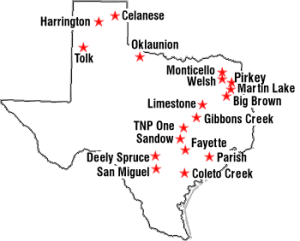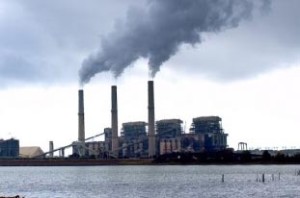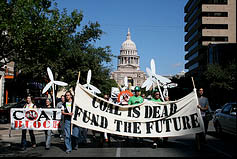Sixty seconds doesn’t seem like a lot of time; however, there are lots of things that can be done in sixty seconds or less. For instance, an average adult can type 38 to 40 words and blink between ten and 30 times every sixty seconds (sometimes simultaneously). Furthermore, an elite distance runner can run about 180 steps every sixty seconds and the world’s fastest rappers can recite over 723 syllables in even less time.
There are a lot of things an average person can do in sixty seconds or less in their everyday life that will, more or less, benefit the earth. So here it goes…
- Switch out your light bulbs to ones that are more energy efficient.
Remember that every time you turn on a light in your home or office you send a message to the power grid, demanding more energy. In America, 301 million people share the same power grid. That’s five percent of the world’s population, inevitably sucking up a quarter of the earth’s energy. Over half of the grid is powered by coal plants alone, which are the nation’s number one culprit for greenhouse gas emissions and other pollutants. The Environmental Protection Agency (EPA) estimates that, for every kilowatt hour of electricity generated by a coal-fired plant, 1.43 lbs of greenhouse gases are released into the atmosphere. In Texas, 144 lung cancer deaths and 1,791 heart attacks a year are attributed to pollution from power plants. Switch to energy efficient light bulbs and cut the amount of energy you use by two-thirds.
- Conserve water by turning off your faucet when brushing your teeth or taking less time in the shower.
The average American family consumes around 300 gallons of water everyday. This works out to be 495,000 gallons per person every year. What boggles my mind is the fact that there are about 1.2 billion people in the world who don’t have access to clean, portable water and here we are overestimating the frugality of our supply. We have to realize that water is fast becoming the world’s ultimate commodity, and water conservation is the most cost-effective way to reduce our demand for it.
There are several quick and easy things you can do in your home or change in your daily routine to conserve water. First, you can simply cut your shower time by 60 seconds or more. If every member in your family does the same, you can end up saving 200 to 300 gallons a month. Also, if you are a fan of hot showers and hate the first 60 seconds or so of cold water that first escapes the showerhead, you can use a container to catch the cold water and save it for when you want to water plants or rinse your vegetables. Second, turn off your faucet when you are brushing your teeth or shaving, and don’t leave the water running when you’re washing dishes—fill one of your sinks for rinse water instead. These simple acts can save three gallons of water in one day alone.
- Read your product labels.
The production and distribution of all kinds of clothing have a tremendous impact on the environment. Wool comes courtesy of sheep, whose herds are known to burp and err… otherwise emit methane—a greenhouse gas that is almost 20 times more powerful than carbon dioxide. In countries like New Zealand, methane is fast becoming the most potent greenhouse gas. Researchers for the United Nations now believe that livestock industries are a major contributor to climate change—being responsible for more greenhouse gas emissions than cars are. Furthermore, the method of growing cotton is extremely petrochemical-intensive. About ten percent of all agricultural chemicals in the United States are used to produce cotton, which is grown on just one percent of all major agricultural land. The process of growing cotton requires 110 pounds of nitrogen fertilizer per acre. At the end of the day, the use of these synthetic fertilizers and soil additives can wreak havoc on our soil, water, and air supply–leading to oxygen-less deadzones or even acid rain. Some popular fashion outlets like H&M are now carrying lines of eco-friendly garments, including those made from organic cotton. Green is the new black; be aware of where your clothes come from and how they are made.
As for the ever popular subject of organic food…
One may enjoy biting into the more conventional, juicy fuji apple—truly nature’s candy, and some say the sweetest apple in town; however, the organic gala apple is just as good as the former, but better for you and for the environment. It’s true that organic food products are almost always more expensive than the more conventional fruits and vegetables; although, it would only be fair to point out that organic farming is a major player in the effort to combat global warming. Birthed during the organic movement of the 1930s and 1940s, today organic farms cover a mere 0.8% of the total farming area in the world. Many people don’t realize the great benefits organic farming offers to our land, lives, and livelihood. Aside from its major contribution of reducing carbon dioxide emissions (done by sequestering carbon in the soil), organic farming also (1) cuts production cost by 25% to 30% for farmers, (2) reduces soil erosion by up to 50%, (3) has a positive effect on the ecosystem and groundwater supplies, and (4) preserves the original nutritional content of food, giving consumers a healthier and fresher substitute.
- Reuse and Recycle: refill your water bottles and separate your trash.
Ever buy a bottle of water before working out at the gym, or have a bottle of water with your lunch? Have you ever contemplated the existence of that bottle of water and how it can affect the environment, even after you have used it?
The United States is the largest consumer of bottled water in the world, with Americans chugging a little less than seven billion gallons in 2004 alone. It takes one and a half million barrels of oil a year to produce the part polyethylene terephthalate plastic bottles made in the U.S. That’s enough oil to fuel 100,000 cars commuting into downtown Austin daily (this is also another issue that needs to be tackled). Globally, it takes more than two and a half million tons of plastic per year to make water bottles. This is a process that requires a whole lot of energy and, in the end, leaves us with heaps of unwanted plastic waste worldwide. Now, I’m not saying to boycott bottled water. I am just saying that if you do purchase bottled water—and do so frequently, don’t throw the bottle out right away. You can reuse the bottle—refilling it with water from the tap or water fountains.
Furthermore, by taking 60 seconds to put your newspaper, tuna can, or salsa jar into a separate recycling bin you can ultimately save humanity years in environmental damage. About 60% of the household trash thrown away everyday can potentially be recycled.
Probably one of the simplest things an individual can do to bring awareness to green issues and hopefully effect change is to speak up and say something. You can talk to the manager of your local supermarket and ask that they carry more organic products. You could call or email your local representative to speak about environmental issues that affect your family, neighborhood, city, or state.
 Why not take 60 seconds out of your day to save the earth?
Why not take 60 seconds out of your day to save the earth?
Yours truly,
Ashlie Lynn Chandler
###
By promoting cleaner energy, cleaner government, cleaner cars, and cleaner air for all Texans, we hope to provide for a healthy place to live and prosper. We are Public Citizen Texas.
Read Full Post »



 Why not take 60 seconds out of your day to save the earth?
Why not take 60 seconds out of your day to save the earth? When: Monday, March 30th
When: Monday, March 30th

